I spent this week chatting online with French film-maker, publisher and historian Rene Vienet, who began his two decades of involvement with Taiwan’s nuclear power program in the late 1970s as the representative for the French nuclear firm Cogema (today known as Orano).
We discussed his work in Taiwan over the years, and the tough decisions involving spent nuclear fuel currently facing Taiwan’s policymakers. The second part of the interview will appear on March 22. The interview has been condensed and edited for clarity.
Michael Turton: You got in touch with me to discuss the problem of Taiwan’s spent nuclear fuel. Why does this concern you so deeply?
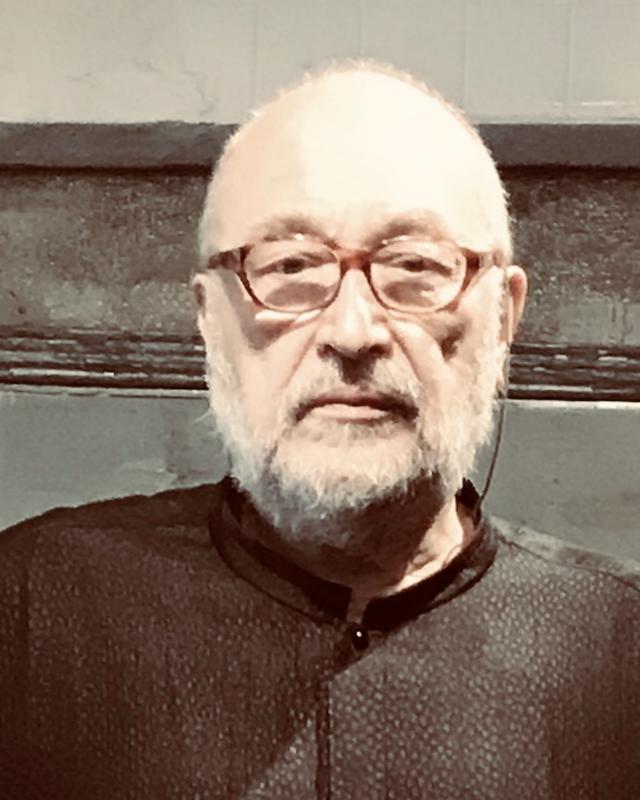
Photo: Michael Turton
Rene Vienet: As the negotiator in Taipei of the French supply to Taiwan Power Company of enriched uranium, I was the main messenger of France’s commitment that the recycling option for spent nuclear fuel would be open, once [Taipei] decided for it. To say the least, I was frustrated when certain French bureaucrats, by 2000, had achieved to derail this plan, for very bad reasons. Since then, I have penned a lengthy article [archive.org/details/taiwan-nucler-spent-fuel-20200320] on this topic to put the record straight.
Personally, I am not comfortable with my Taiwanese family, and millions of other people, living near the four over-saturated reactor pools at the Jinshan and Guosheng nuclear power plants. These pools were never designed for long term storage. They are transfer pools intended for a few years cooling of the spent fuel before it is taken away. Spent fuel overstaying in over-saturated reactor transfer pools is not a reasonable strategy. Can the [Democratic Progressive Party] DPP government solve, in a smart way, the disputed issue of Taiwan’s spent fuel disposal, far away from Jinshan and Guosheng?
MT: Why France? How did the idea of recycling spent fuel in France originate?
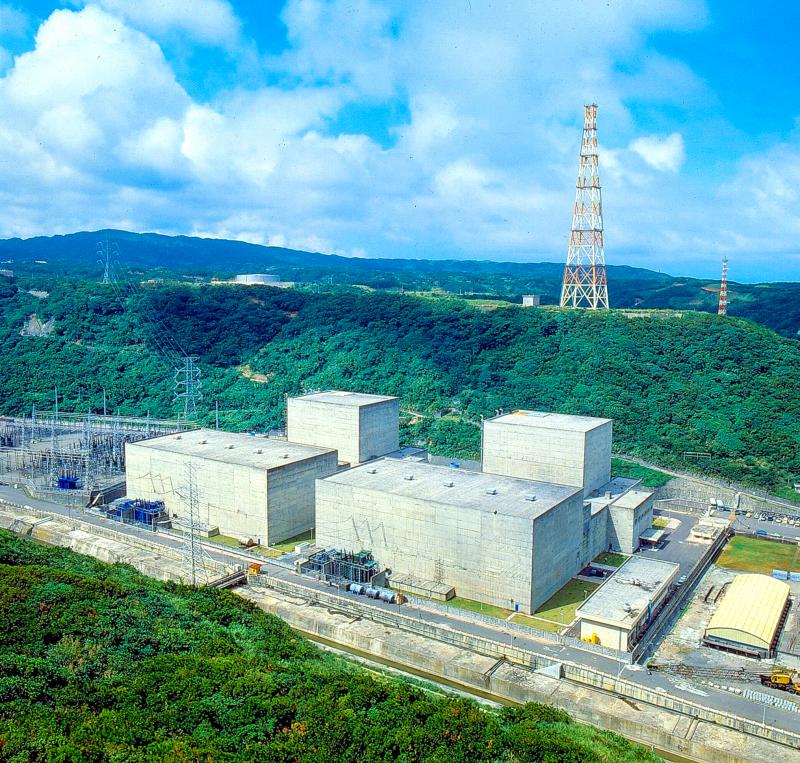
Photo courtesy of Taipower
RV: It all began with the visit of [former finance minister and then-minister without portfolio] Li Kwoh-ting (李國鼎) to the La Hague Nuclear Recycling and Reprocessing Plant in 1981 and his decision to approve the procurement of a huge amount of enriched uranium from France.
Dr Li was very impressed by the La Hague plant and, with the idea in mind of later recycling Taiwan’s spent fuel in France, he consented that Taipower [Taiwan Power Co] sign for a huge enriched uranium contract in 1982: a 20-year supply contract for one third of the needs of Taiwan’s six existing nuclear reactors (and the next two ones, then postponed but still in project). Banque [BNP] Paribas, of which I was also the delegate, arranged the financing with the explicit support of the French Ministry of Finance. The contract, which I initialed on Bastille Day, July 14th, 1982, in fact lasted until 2013.
MT: All the reactors in Taiwan at that time were American-built. Was the US involved in this at all?
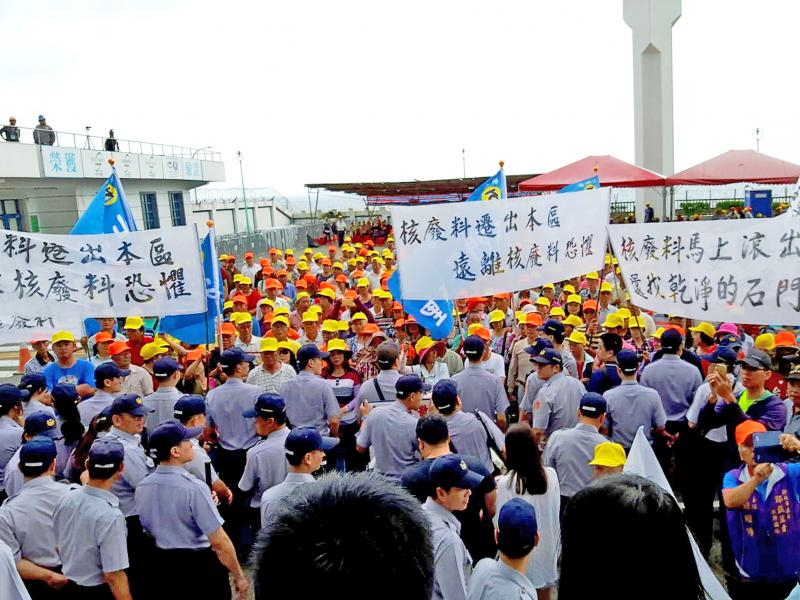
Photo provided by a reader
RV: I was a young delegate of the recently established Cogema [today known as Orano] corporation, and the older Paribas Bank. I followed the advice of my friend Mark Pratt, then the number two official at the American Institute in Taiwan (AIT), who in many ways was my coach for this fine-tuned development of French nuclear fuel industry in Taiwan.
As you know, besides the AIEA’s [International Atomic Energy Agency] own controls, the country of origin of nuclear reactors has the obligation of control over the spent nuclear fuel. This is another safeguard against nuclear proliferation. As the six reactors in operation in Taiwan by then were American, Washington had full control over all Taiwan’s spent fuel (whatever the origin of imported fresh fuel).
MT: So Washington was in on it from the start.
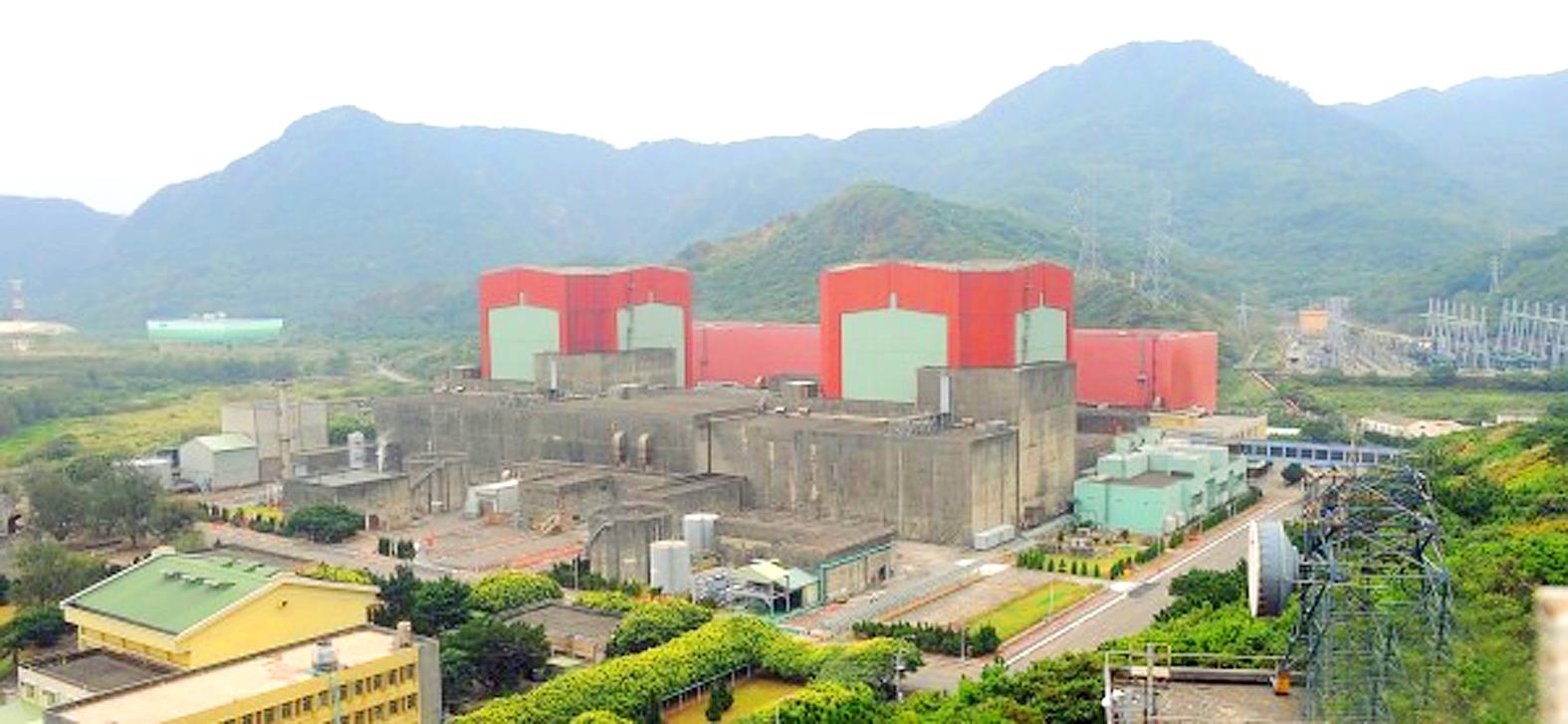
Photo: Lin Hsin-han, Taipei Times
RV: Yes. Mark agreed that the best possible ultimate fate for Taiwan’s spent fuel would be reprocessing in France, leaving no plutonium in Taiwan. He offered me two further tips. First, always arrange a visit to La Hague when escorting Taiwanese visitors to the Eurodif [European Gaseous Diffusion Uranium Enrichment Consortium, a subsidiary of Orano] enrichment facility. Then, never forget that Dr Li, with his broad overview on energy and technology and economy, would be the ultimate decision-maker.
Dr Li was a smart, swift and easy-to-access statesman. Our dialogue was simple and friendly. We met, without protocol, usually in one of his downtown offices, sometimes also in his Minister of State office within the PM compound
Ever since, Washington has always demonstrated goodwill for Taiwan’s spent fuel to be recycled in France.
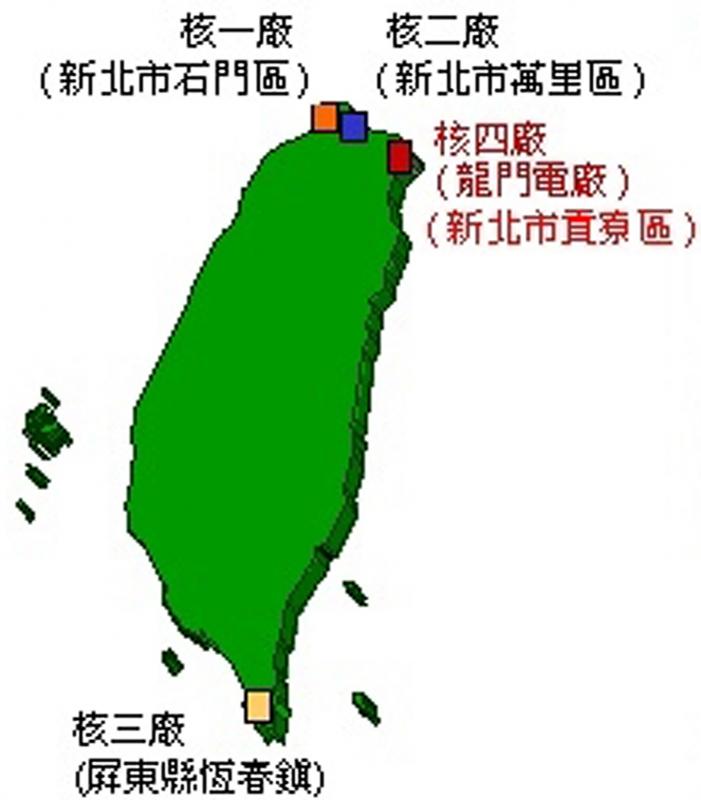
Photo Courtesy of the Atomic Energy Council
MT: Did you also work with the dangwai (黨外, “outside the party”) during this period?
RV: Yes. Dr Fredrick Chien (錢復), then in charge of foreign affairs, reminded me that Taiwan’s path to democracy implied that dangwai personalities should share correct and valuable information on long term energy issues. So, again, Mark introduced me, during the frequent get-together dinners and cocktail parties at his residence, next to mine, to some dangwai leaders whom I had spotted during the Kaohsiung Incident trials I had attended.
My next guest at La Hague was of course Taipei county commissioner You Ching (尤清), a dangwai heavyweight. He had the Jinshan and Guosheng nuclear power stations in his constituency (today’s New Taipei City). You Ching was not pro-nuclear, but pleased that France had a solution for what he considered his most thorny worry, the spent fuel which he did not want to overstay on his turf. Once he returned from La Hague, I suggested he should share his impressions with Taipower’s Nuclear Fuel Department deputy director. He obliged with an informal dinner at his Banciao residence, and they got along quite well, both happy that France would take away the spent fuel.
I also arranged the visit to La Hague of some lawyers close to the future of the DPP: Chen Shui-bian (陳水扁). Chen could not go at the last minute and suggested that his friend Chang Chun-hsiung (張俊雄) replace him and travel with their colleague Paiff Huang (黃柏夫), who happened to be the AIT lawyer.
MT: Sounds like you were quite bipartisan in your strategy.
RV: Very much, for sound obvious reasons. I had anticipated when I interviewed for the French main weekly l’Express president Chiang Ching-kuo (蔣經國) on Christmas day of 1978 — at the time I was leaving French university to move to Taiwan a few weeks later with a comprehensive project to develop France-Taiwan relations. Though it was a tense moment due to Washington moving its embassy to Beijing, and elections being canceled, and [then-US deputy secretary of state] Warren Christopher receiving a shaky welcome from Taoyuan Airport to his hotel, I bet that ultimately democracy would prevail in Taiwan.
Notes from Central Taiwan is a column written by long-term resident Michael Turton, who provides incisive commentary informed by three decades of living in and writing about his adoptive country.

In the March 9 edition of the Taipei Times a piece by Ninon Godefroy ran with the headine “The quiet, gentle rhythm of Taiwan.” It started with the line “Taiwan is a small, humble place. There is no Eiffel Tower, no pyramids — no singular attraction that draws the world’s attention.” I laughed out loud at that. This was out of no disrespect for the author or the piece, which made some interesting analogies and good points about how both Din Tai Fung’s and Taiwan Semiconductor Manufacturing Co’s (TSMC, 台積電) meticulous attention to detail and quality are not quite up to

April 21 to April 27 Hsieh Er’s (謝娥) political fortunes were rising fast after she got out of jail and joined the Chinese Nationalist Party (KMT) in December 1945. Not only did she hold key positions in various committees, she was elected the only woman on the Taipei City Council and headed to Nanjing in 1946 as the sole Taiwanese female representative to the National Constituent Assembly. With the support of first lady Soong May-ling (宋美齡), she started the Taipei Women’s Association and Taiwan Provincial Women’s Association, where she

It is one of the more remarkable facts of Taiwan history that it was never occupied or claimed by any of the numerous kingdoms of southern China — Han or otherwise — that lay just across the water from it. None of their brilliant ministers ever discovered that Taiwan was a “core interest” of the state whose annexation was “inevitable.” As Paul Kua notes in an excellent monograph laying out how the Portuguese gave Taiwan the name “Formosa,” the first Europeans to express an interest in occupying Taiwan were the Spanish. Tonio Andrade in his seminal work, How Taiwan Became Chinese,

Mongolian influencer Anudari Daarya looks effortlessly glamorous and carefree in her social media posts — but the classically trained pianist’s road to acceptance as a transgender artist has been anything but easy. She is one of a growing number of Mongolian LGBTQ youth challenging stereotypes and fighting for acceptance through media representation in the socially conservative country. LGBTQ Mongolians often hide their identities from their employers and colleagues for fear of discrimination, with a survey by the non-profit LGBT Centre Mongolia showing that only 20 percent of people felt comfortable coming out at work. Daarya, 25, said she has faced discrimination since she